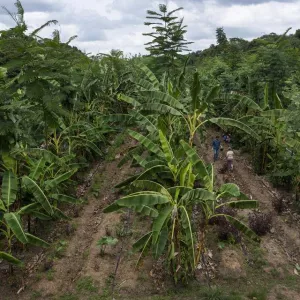TerraBio's first results show impact on biodiversity in ABF’s businesses
Results from TerraBio’s first two monitoring cycles show a mixed impact on biodiversity from the projects that received funding from the Amazon Biodiversity Fund (ABF). The ABF is a private fund, advised by Impact Earth, whose purpose is to invest in projects and companies with a social and environmental impact in the Legal Amazon (find out more here). Despite only

TerraBio's first results show impact on biodiversity in ABF’s businesses
Results from TerraBio’s first two monitoring cycles show a mixed impact on biodiversity from the projects that received funding from the Amazon Biodiversity Fund (ABF). The ABF is a private fund, advised by Impact Earth, whose purpose is to invest in projects and companies with a social and environmental impact in the Legal Amazon (find out more here). Despite only being in the very early stages, some results show an increase in similarity in insect communities and increased carbon capture by vegetation in those areas that are being restored. By 2023, around 5,000 hectares had been monitored.
Developed by Alliance of Bioversity International and CIAT, Spatial Informatics Groups (SIG) and USAID, TerraBio is a tool that combines cutting-edge geospatial data analysis technologies with environmental DNA to evaluate various land usage and investment models in terms of their relative impacts on biodiversity. It consists of a monitoring, reporting and verification approach to generate evidence on environmental impacts of the sustainable business operations of the companies financed by ABF.
This methodology has been used to evaluate four projects, all different in terms of products, geographies and activities. They are Horta da Terra (a company that produces non-conventional food plants from the Amazon in a regenerative-syntropic system), Café Apuí (Amazônia Agroflorestal, which engages farmers in the recovery of degraded areas through agroforestry systems, with a focus on coffee), Inocas (a company that plants macaúba in an agroforestry system as an alternative source of vegetable oil) and AgroVerde/ReforesTerra (working on the reforestation of 2,000 hectares of permanent protection areas on small farms in Rondônia).

